Zaffar Kunial
The Word
Have you ever projected your own awkwardness onto someone else? How did you do it? And how would you address them now?
This poem recalls how, as a young adult, Zaffar Kunial judged his immigrant father’s way of speaking English. A poem that’s filled with adolescence as with awkward parental relationships, it also speaks of his yearning to fit in, to enjoy his own life. Shame features in this poem — the younger poet had been ashamed of his father’s grammar, but now, with time, he seems ashamed to have been that son.
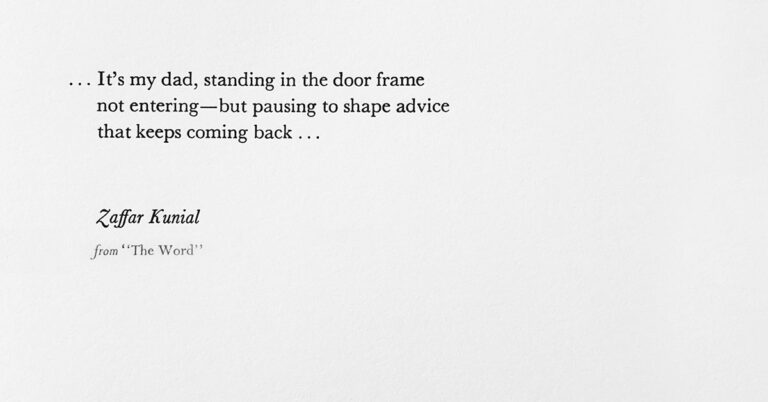
Image by Expedition Press/Expedition Press, © All Rights Reserved.
Guest
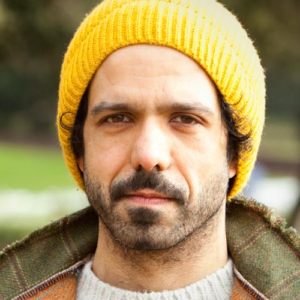
Zaffar Kunial was born in Birmingham, England. He is the author of Us and was shortlisted for a number of awards including the Costa Poetry Award and the T. S. Eliot Prize. He is currently the Douglas Caster Cultural Fellow in Poetry at Leeds University. A pamphlet, Six, was out from Faber in 2019.
Transcript
Pádraig Ó Tuama, host: My name is Pádraig Ó Tuama, and one of the things I love about poetry is that often, poetry isn’t trying to describe your full life, if you’re writing about yourself. Poetry is trying to describe something that happened once, that it can drop into a moment and, by observing that moment, you can see all kinds of aspects of the various people that you were, in that single moment.
[music: “Praise The Rain” by Gautam Srikishan]
Ó Tuama: “The Word” by Zaffar Kunial:
“I couldn’t tell you now what possessed me
to shut summer out and stay in my room.
Or at least attempt to. In bed mostly.
It’s my dad, standing in the door frame
not entering – but pausing to shape advice
that keeps coming back. “Whatever is matter,
must enjoy the life.” He pronounced this twice.
And me, I heard wrongness in putting a the
before life. In two minds. Ashamed. Aware.
That I knew better, though was stuck inside
while the sun was out. That I’m native here.
In a halfway house. Like that sticking word.
That definite article, half right, half
wrong, still present between enjoy and life.”
[music: “Ashed to Air” by Gautam Srikishan]
Ó Tuama: There’s so much in this poem that I admire and like. I’m brought instantly into an experience of being a teenager and trying to figure yourself out, and the world is shining outside. You’ve got long, languorous summers given to you in summer holidays, and yet, you’re not outside, you’re inside.
And then Zaffar Kunial adds this extraordinary element to it, in terms of the question about fluency in English. Zaffar Kunial is British-born, in Birmingham; his parents speak Urdu, and so his father isn’t speaking in his first language. And so his father is technically making grammar mistakes, I suppose, and Zaffar Kunial is awkward and aware and ashamed — ashamed of what, though? That’s partly what this poem is about. Is he ashamed of having a father whose English isn’t perfect, doesn’t sound native? Is he ashamed of himself for being ashamed of that? Is he ashamed of himself for being stuck in this awkward phase of teenagerhood, or having a dad who’s standing at the door, giving you advice whether you want it or not?
[music: “Into the Earth” by Gautam Srikishan]
Ó Tuama: The very clever thing is that this poem is looking back, because it’s easy to forget that the very first line is, “I couldn’t tell you now what possessed me / to shut summer out and stay in my room.” So this is a poet looking back to a particular summer. And it does feel like this poet is more aware now than the version of himself that they’re narrating in the poem. And the poem has great tenderness. The poem doesn’t use the formality of “father,” it uses the informality, the affectionate, of “dad.” “It’s my dad, standing in the door frame / not entering — but pausing to shape advice.”
And I wonder, was that courtesy? Was that wondering, what is the gulf between a father and a son? How do they speak to each other at being migrants, wondering what the culture that the son inhabits while the father’s inhabiting another one? Freud said that part of the role of being a teenager is to make your parents hate you enough so that they’ll be able to cope when you move away. And I think that’s such an insight, in terms of some of the ways within which anxiety and anger can flare up between children and their parents, when you’re a teenager or when you’re in your early 20s, as you’re living at home and trying to figure out what this in-between space between adult and child is, and how you figure out how to be independent while also, in a certain sense, continuing to be dependent.
There seems to be a lack of understanding, but yet, the words here, “dad,” “pausing,” “shape” — those things are deliberate words, kind words, affectionate words and familial words.
But the father, too, comes into this frame with courtesy, with this deep desire for the son to “enjoy the life.” The poem focuses on the grammatical mistake of “enjoy the life,” where, perhaps, it should have just said, “enjoy life” or “enjoy your life.” But those grammatical mistakes are only surface. What’s deeper is care, because the father says, “Whatever is matter, / must enjoy the life.” And “whatever is matter” — I get the impression that the father knows that something is up. Something is the matter. There’s something happening in this son of his that means he’s shutting himself up in his room. And the father is trying to, from the door frame, say, “Whatever’s the matter, you must enjoy your life. You must enjoy life. Whatever it is that’s going on” — there’s so many possibilities that’s present in these gorgeous, loving words that he’s saying, trying desperately to reach out to his son, but the son, perhaps, not entirely sure how to take the raft of those words and make them work for him.
Ó Tuama: So often, when we’re in a situation, we feel like, “If only I had this, then I’d be able to enjoy my life.” And then, years later, we look back on that period and think, My God, you had all these other things. Why weren’t you able to enjoy it then?
I’m now the age my dad was when I was 13. I wouldn’t want to be the parent of me as a 13-year-old, so I have all the sympathy for my dad. And when I was 13, I had all kinds of ideas about what a good person was, and I had all kinds of criticisms of everybody, really, my dad included. And these days, if dad is ever critical of himself, I’m the one who wants to tell him to be softer on himself. And I realize now that when I looked at my parents when I was younger, so often you think that they thought they were brilliant, and that they were just ordering us around. Now, as an adult, I realize that my parents probably felt lost and that they were looking at us, thinking, What kind of planet do you live on? And how do we speak to that planet? And how do we speak to each other? What’s this great gulf between us, this gulf of language, this gulf of culture, this gulf of arts and understanding and interests? And I think I look back on them now with a softness and with a sense of congratulations for all that they did and congratulations for the kindness and generosities that they offered, even though I couldn’t appreciate it at the time.
Ó Tuama: I think this poem works on a number of levels. On the one hand, it invites us to be curious and cautious about the things that cause us anger or shame, in relationship to the people who are closest to us, to think that that might be a button that’s opening something in us, rather than something for which somebody else is to blame. It’s also an invitation to imagine what it might be like to look back on a time of difficulty in your life, with the benefit of time. This poet is a number of years past this experience and still can’t explain it, but is able to narrate himself with a kind of pastoral sensitivity, as well as narrate his dad. And time has its own work to do. And sometimes, explanation is not the final analysis. The final thing, perhaps, is being able to look on ourselves, and look on the other people in our lives, with kindness.
[music: “Every Place We’ve Been” by Gautam Srikishan]
Ó Tuama: “The Word” by Zaffar Kunial:
“I couldn’t tell you now what possessed me
to shut summer out and stay in my room.
Or at least attempt to. In bed mostly.
It’s my dad, standing in the door frame
not entering – but pausing to shape advice
that keeps coming back. “Whatever is matter,
must enjoy the life.” He pronounced this twice.
And me, I heard wrongness in putting a the
before life. In two minds. Ashamed. Aware.
That I knew better, though was stuck inside
while the sun was out. That I’m native here.
In a halfway house. Like that sticking word.
That definite article, half right, half
wrong, still present between enjoy and life.”
[music: “Praise The Rain” by Gautam Srikishan]
Lily Percy: “The Word” comes from Zaffar Kunial’s book, Us. Thank you to Faber & Faber, and Rogers, Coleridge & White Literary Agency who gave us permission to use Zaffar’s poem. You can find a link to the poem in our show notes, along with Pádraig’s guiding question for this episode.
Poetry Unbound is Chris Heagle, Erin Colasacco, Serri Graslie, Eddie Gonzalez, Lilian Vo, Christiane Wartell, Karen Navarre, Karyn Towey, Sue Ariza, and me, Lily Percy. Our music is composed and provided by Gautam Srikishan and Blue Dot Sessions. This podcast is produced by On Being Studios, which is located on Dakota land. We also produce other podcasts you might enjoy, like On Being with Krista Tippett, Becoming Wise, and This Movie Changed Me — find those wherever you like to listen or visit us at onbeing.org to find out more.
Books & Music
Recommended Reading
The On Being Project is an affiliate partner of Bookshop.org and Amazon.com. Any earnings we receive through these affiliate partnerships go into directly supporting The On Being Project.






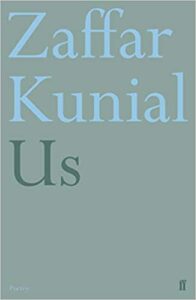

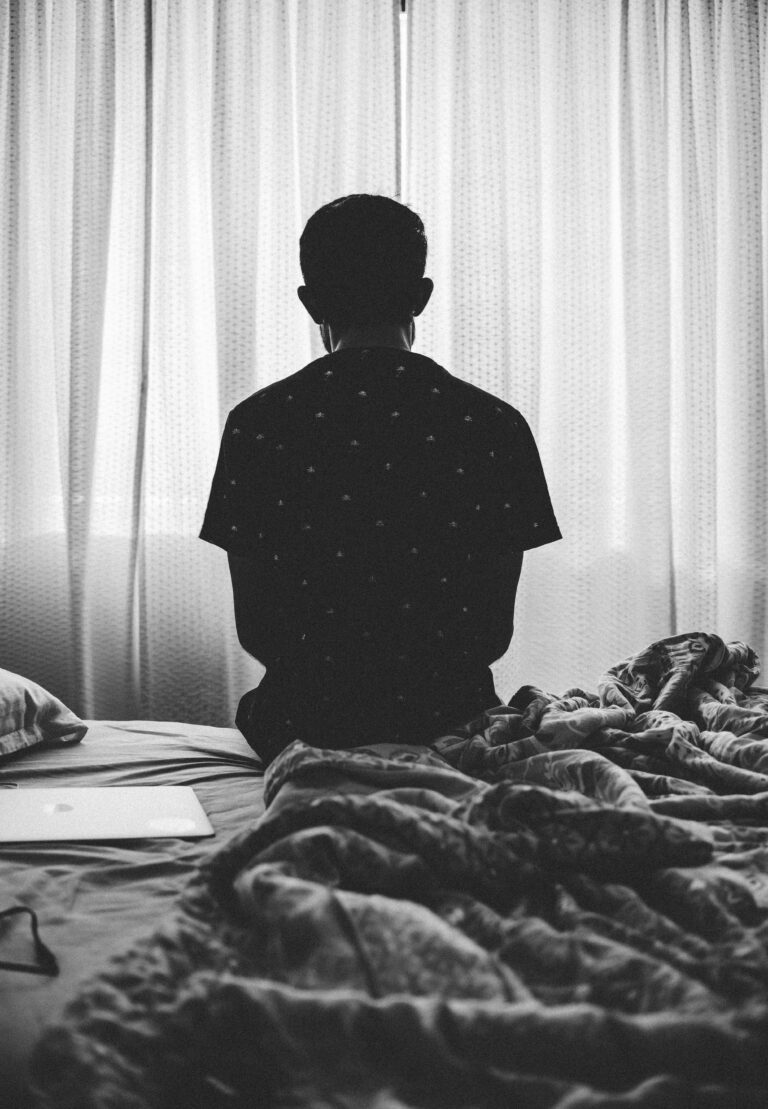
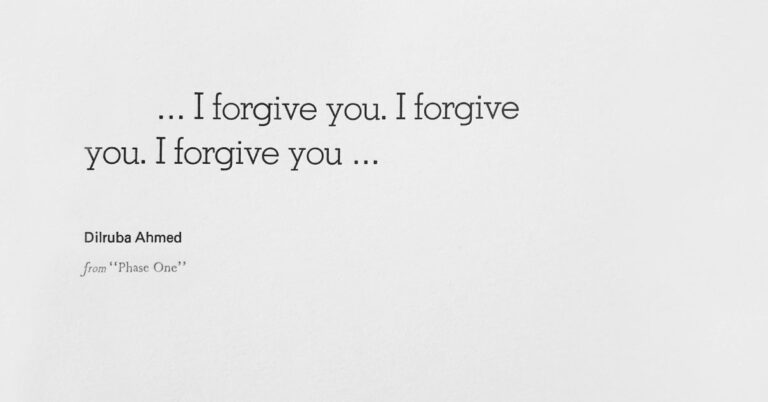
Reflections